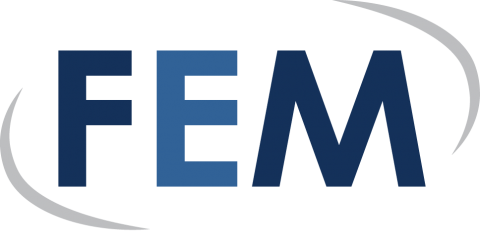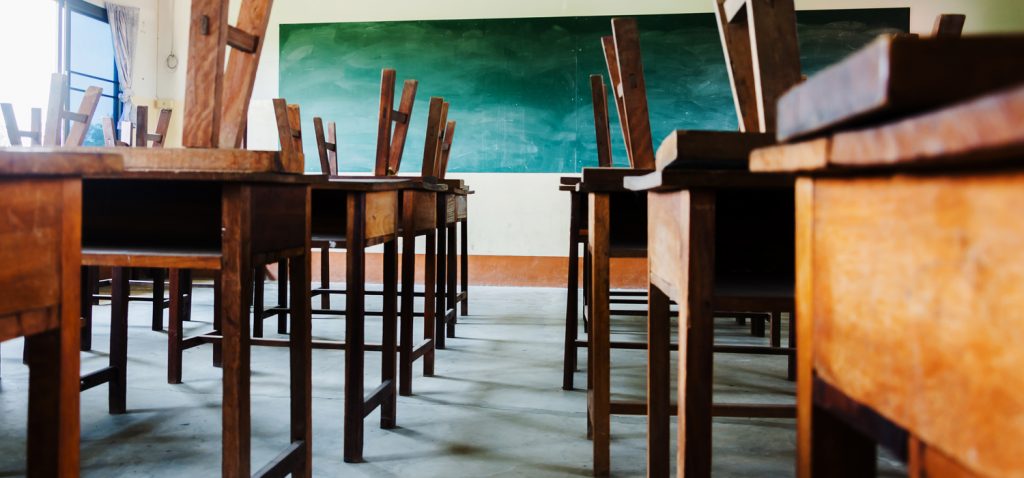Infrastructure PR Sunday Times Skills PR The South African Schools Collection PR
Low Quintile Schools Struggling Due To Pandemic
Workmen’s Compensation provider for the construction industry, The Federated Employers Mutual Assurance Company (FEM), through their FEM Education Foundation (FEMEF), supports a number of NGOs across education in South Africa. These organisations range from offering learning programmes for low quintile schools to providing support to learners who cannot access quality education due to limited financial resources.
The NGOs include Funda Wande, Columba Leadership, Make A Difference Leadership Foundation, SmartStart and Symphonia for South Africa (SSA) through its Partners for Possibility (PfP) programme.
Thozama Njobe at Funda Wande, explains that new data from NIDS-CRAM Wave 5 research found that between March 2020 and June 2021, most primary school learners in South Africa have lost 70%-100% (a full year) of learning relative to the 2019 cohort.
Funda Wande aims to ensure that all learners in SA can read for meaning and calculate with confidence in their home language by the age of 10.
Ms Njobe notes that the report has updated previous estimates of learning losses by assuming that previous losses due to rotational timetables (reported in Shepherd et al, 2021), estimated to be 50-75% of a year of learning for 160 school days lost, are the same as the learning losses resulting from the ongoing rotational timetables in 2021 up to and including June 2021.
The report adds: “In total, 93 days of schooling have occurred between 15 February 2021 and 30 June 2021. Assuming contact learning for 50% of this time, our best estimates suggest that most primary school children have lost between 70% to a full year of learning since March 2020. To put this in perspective, this is the same as saying that the average Grade 3 child in June 2021 would have the same learning outcomes as the average Grade 2 child in June 2019.”
“Since Make A Difference (MAD) Leadership Foundation works in over 50 schools across South Africa, it was our experience that schools reacted in vastly different ways and engaged their students at different points in time on various platforms. Learners faced a whole new way of teaching and learning while keeping up with their institutions’ goal of maintaining academic requirements,” explains Helette Pieterse, Chief Executive Officer, at MAD Leadership Foundation.
MAD Leadership Foundation provides a comprehensive, personal, and long-term scholarship programme, offering scholars support in the areas of academic, leadership and personal development.

Moved by the gravity of the situation, SSA, through its PfP programme, initiated the Food 4 Hungry Children project. “With the help of our community, we were able to capture data on the food needs of learners and their families from a network of over 1,000 school principals,” explains Programme Director, Komala Pillay.
“Through collaborations with many organisations, thousands of vulnerable families received food parcels. When learners and teachers returned to class as the lockdown eased, making use of generous corporate donations, SSA assisted in identifying the need and distributed protective masks to limit the spread of COVID-19 at schools,” she says.
Research conducted by SSA revealed that many schools experienced a dramatic loss of income from school fees, voluntary contributions and fundraising efforts during lockdown. “Most principals in under-resourced schools said they would run out of funds to pay the salaries of their staff who are not employed by the state. This would inevitably lead to retrenchments. We successfully educated our principals, as well as small businesses in school communities, on how to access support in order to keep paying their employees,” adds Ms Pillay.
SmartStart, a provider of early learning opportunities to children across South Africa, says it had to reimagine new ways to keep children stimulated and its network practitioners financially secure. “We created home learning materials for continued stimulation and early learning at home and then worked with our primary investors, government and other donors to secure financial and other relief for our practitioner network,” explains Samantha Maasdorp, Network Strategist at SmartStart.
Another FEM-supported NGO, Columba Leadership, works primarily with high schools on youth engagement and leadership in under-served communities with a focus on learners in Grade 10-12, followed by post-school contact and support.
Jean Armstrong, CEO at Columba Leadership, explains that the pandemic has impacted significantly on work in the school environment. “The pressure on principals, educators and learners means the focus is on academics. “Longer school days, to cover curriculum and ensure assessments, mean less time for extramural activities, important to the holistic development of learners.”
But positives have been taken as a result of the pandemic. “Our team has learnt how to use digital tools which has improved internal communication across the provinces. It has also highlighted the need to address social and emotional wellbeing internally and externally – which has always been a factor for our organisation but was brought to the fore during the pandemic. This has led to our piloting a social and emotional learning programme with partner Cool to Be Me, which we hope to expand in the future,” explains Ms Armstrong.
Ms Pieterse of MAD Leadership continues, “By reflecting on the complexities and challenges we were faced within 2020, we have been able to anticipate and plan for similar situations we might face in 2021.”
SSA also experienced positive outcomes. SSA created a number of platforms on which school principals and business leaders, learned, shared information and supported each other. “To support teachers in their difficult task of remote learning, we made available resources on the knowledge management platform, A Better Africa. We also ran workshops to enable our principals and business leaders to make use of these resources. In addition, we hosted webinars to provide emotional and practical support to our principals, business leaders and team to cope with the challenges of COVID-19.”
“For business partners and principals, the transition to virtual working required a lot of preparation. We are happy to report that our programmatic activities have been able to continue online, ensuring that participants enjoyed the full benefits and experience of the PfP programme. We felt it important to provide free online refresher courses for principals and business partners to reinforce the key leadership principles learnt on their PfP journey, and how they can apply these in the current troubled times,” Ms Pillay adds.
“Traditionally, our training and support programmes were delivered face-to-face in brick and mortar locations. While face-to-face remains the most effective way for learning, especially early learning for children, we are finding ways to further blend our learning through inclusive technologies,” adds Ms Maasdorp of SmartStart.
“Despite the many challenges faced over the past year, we have learned how to engage and support our scholars remotely and we’re excited about the opportunities this presents, especially as we have a strong agenda to scale the number of scholars we support,” concludes Ms Pieterse of MAD Leadership Foundation.






